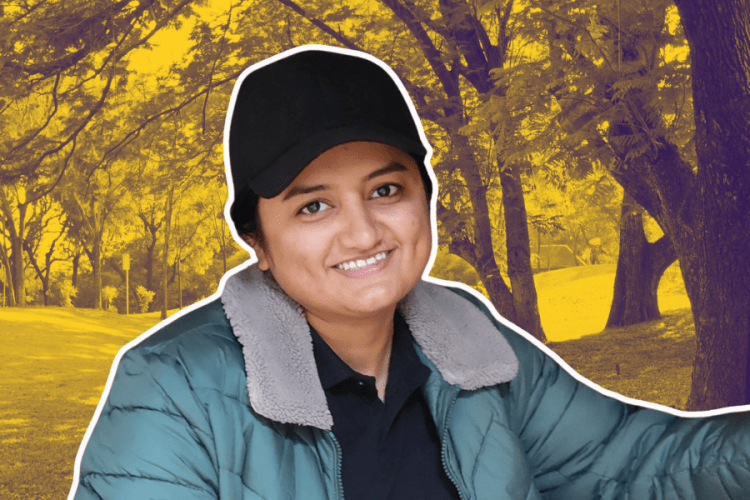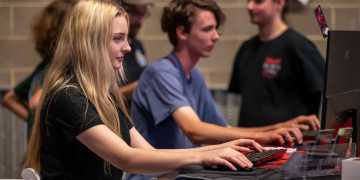Rabia rebuilt her life after years of control and violence. Now she’s supporting survivors and helping a new generation understand what abuse really looks like.
Editor’s Note: This article contains discussion of sexual violence, domestic abuse, coercive control, image-based abuse, and suicide. It includes the lived experience of a survivor.
After surviving years of coercive control, domestic violence and image-based abuse, Rabia is now helping other women escape abuse sooner – and safer.
She’s sharing her story to educate young people, support a new state government campaign, and remind survivors: it’s never your fault.
Locked in, shut out
“If I die, he wins. So I chose to live.”
Rabia remembers the moment she made that decision.
She was in hospital after a suicide attempt, shattered by the public humiliation of having intimate photos shared online – images she never agreed to share, posted by a man she thought she could trust.
She met him in Pakistan. It was an arranged marriage, and she felt safe in the idea that her family had chosen someone kind. He flew over from Australia to marry her. Soon after, she left everything behind to join him here.
“He wasn’t the person I thought he was,” she says. “He locked me in the house when he went to work. He told me Australia was dangerous for women. He said I didn’t need to study, didn’t need to go out. I just had to cook, clean, and keep him happy.”
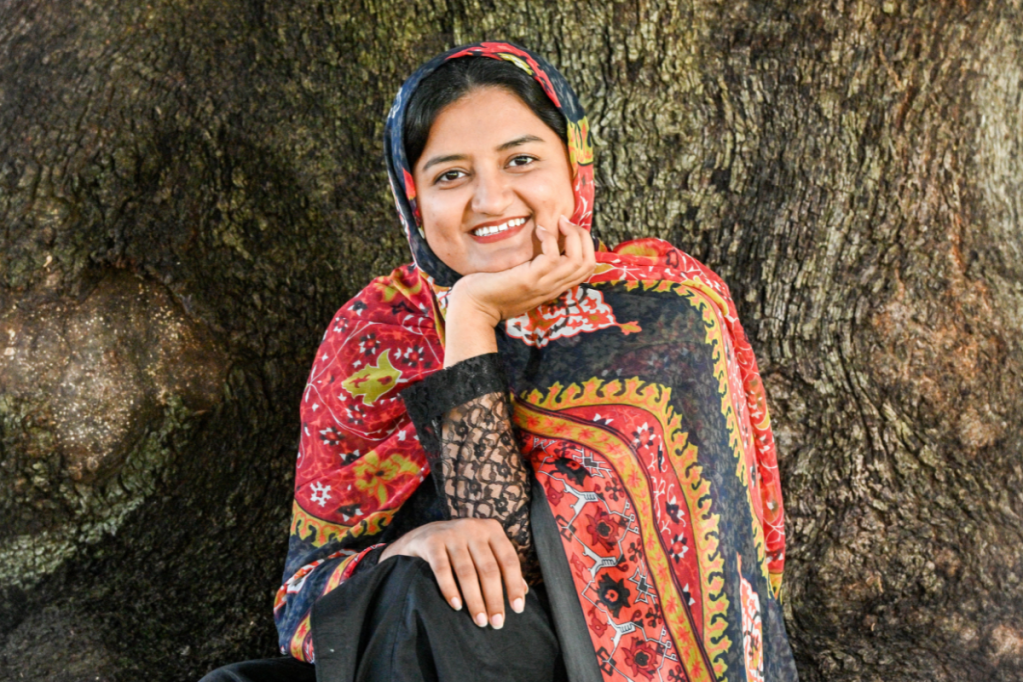
Escalating abuse
The abuse escalated quickly. He cut off her internet. Controlled her phone. Monitored her every move. He told her the Australian police would never believe her. That she had no rights. That she owed him everything.
Then came the sexual assaults. The strangulation. The escalating physical violence. And the intimate photos. At first, he told her they were for love. Then he used them to blackmail her: if she left, the photos would go public.
“I was scared to go out, and scared to stay at home,” she says. “It felt like there was no way in, and no way out.”
When Rabia found the courage to leave him after three years, he sent the photos to her family in Pakistan and posted them online.
“My whole world collapsed,” she says.
That’s when she attempted suicide. But a friend found her in time. After a stay in hospital, she found her strength.
“I realised if I die, he wins,” she says. “So I lived. And I decided to fight.”
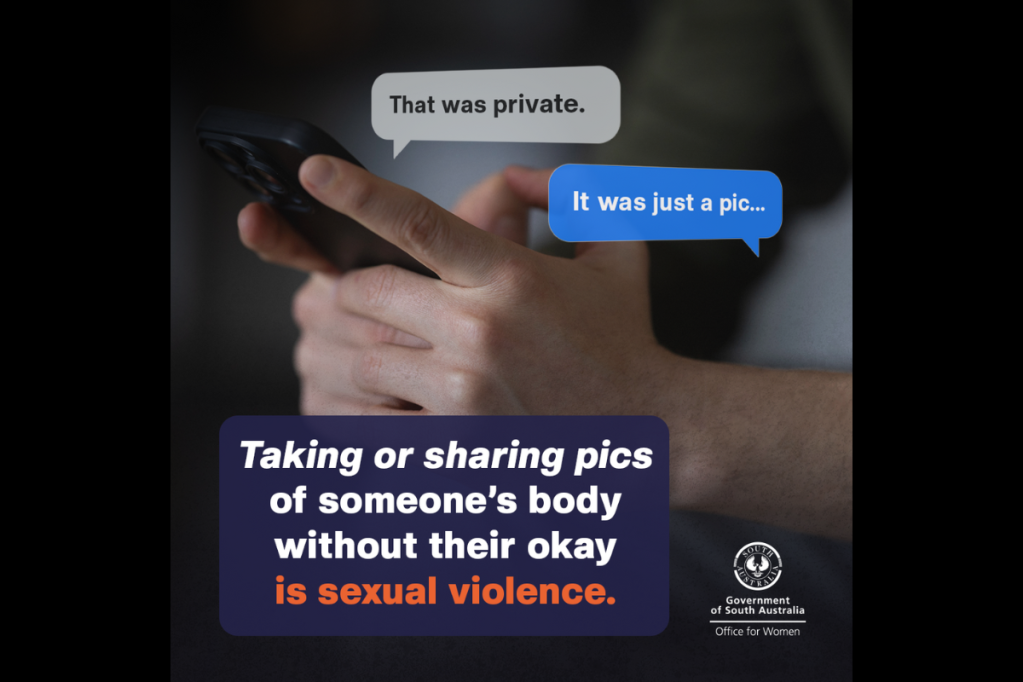
Image-based abuse is sexual violence
Rabia is now throwing her support behind South Australia’s new social media push to raise awareness of the forms of sexual violence, a 10-week initiative led by the Office for Women.
The social media push is confronting and clear: pressuring someone into sex, sharing photos without consent, downplaying someone’s fears – these are all forms of sexual violence.
Rabia knows this better than anyone. “Society teaches victims to feel shame. But we can change that. The shame belongs to the abuser.”
“I was silenced for too long. Now I realise voice is my power. Silence only protects perpetrators. Let’s break the silence, speak up and support each other.”
The social media push aims to reach young people where they are: online. It highlights just how blurred the lines have become for a generation raised on digital intimacy and toxic internet culture.
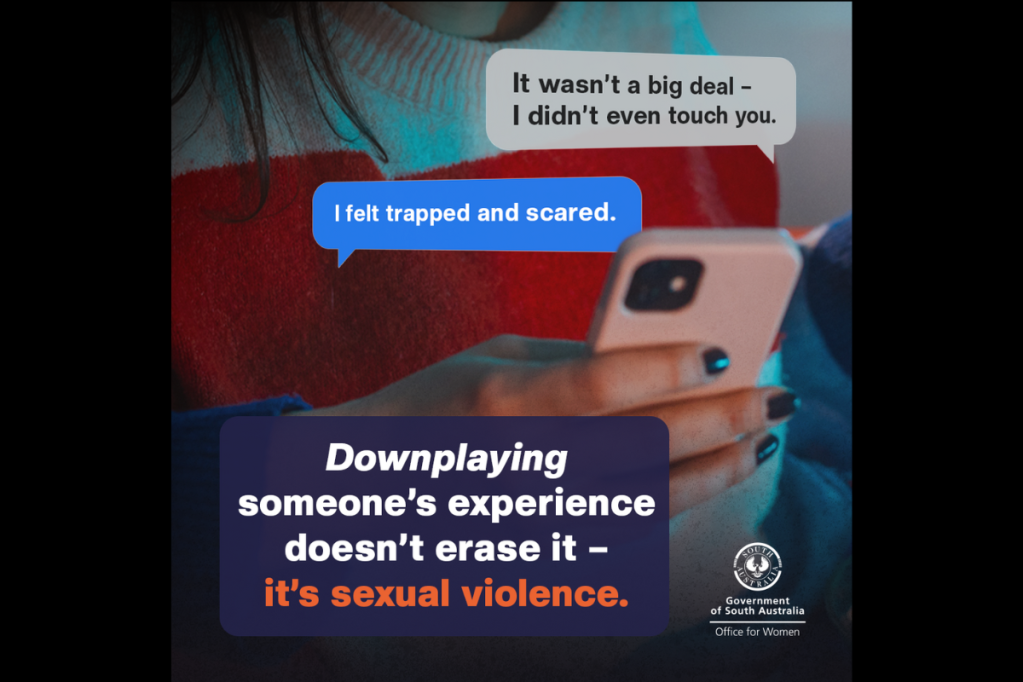
What the stats say
A recent survey by Our Watch of Australians aged 14-20 found:
- 27 per cent confused controlling behaviours as signs of healthy boundaries;
- 29 per cent thought forcing physical touch out of love was a healthy boundary; and
- 54 per cent believed that if a boy wants to have sex with a girl, it is up to the girl to make it very clear she doesn’t want to.
“Sexual abuse doesn’t always look like what you see on TV,” Rabia says. “It starts with physical boundaries being ignored, unwanted sexual comments, or jokes about your body. They use pressure: ‘If you love me, you will…’. If it doesn’t feel right, it probably isn’t.”
“When consent is missing, it’s sexual abuse. Coercion, manipulation, guilt-tripping, love bombing – these are red flags too.”
Rabia says the current social media push is an essential step towards helping young people identify abuse – and she hopes that it can lead to more online education in the future.
“These messages should just pop up in your feed … not something you have to search for. Because the false messages – about control, about what women owe men – those are everywhere.”
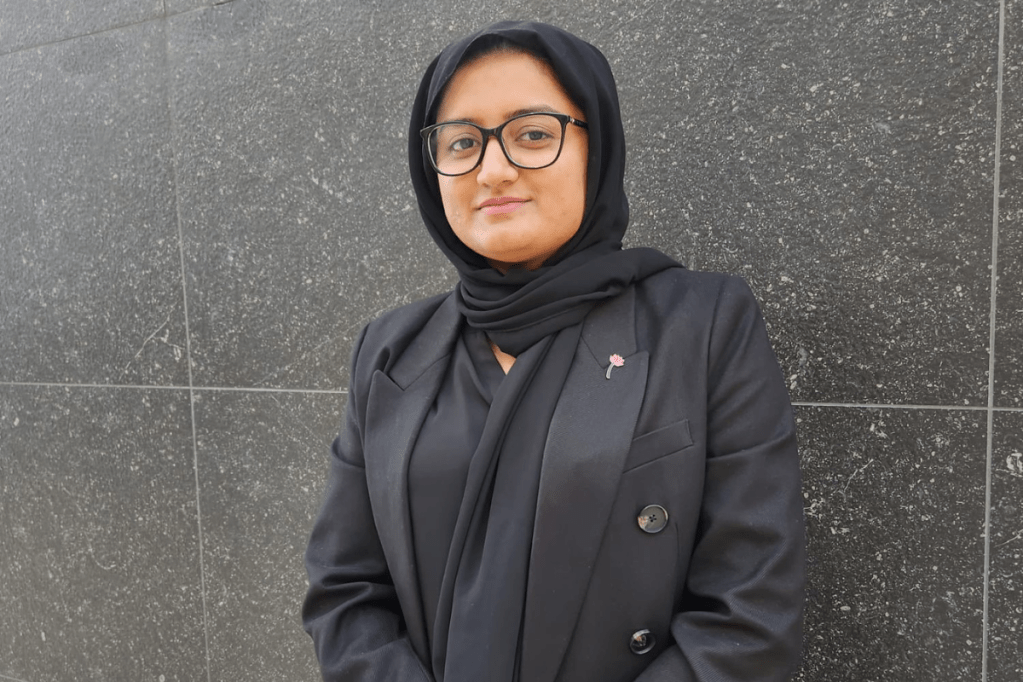
Education saved her. Now she wants it to save others.
Rabia’s experiences have made her fiercely passionate about educating young people – especially girls – about healthy relationships.
“I didn’t know what coercive control was. I didn’t know I had rights. I had a Masters in clinical psychology back home, but it didn’t help me here. What I needed was education on what’s okay, what’s not okay, and what help looks like in Australia.”
She wants young women to spot the warning signs early – before romance escalates to control and violence.
She wants girls to know their worth isn’t tied to whether they have a boyfriend – and to be able to support each other.
“If a friend suddenly changes how they dress, act or speak, it might not be ‘just a phase’ – it might be a trauma response. Don’t ignore it. Pay attention, ask questions, and believe them.”
Most of all, she wants women to know that “abuse is never your fault – and it’s never too late to learn something new, like what your rights really are here in Australia.”
She also wants boys to understand that they don’t have to use violence to be respected. “It’s not your fault how you were raised. But now, you get to choose the kind of man you want to be.”
“You don’t need to use violence to be heard. You can be a good man. You can break the pattern.”
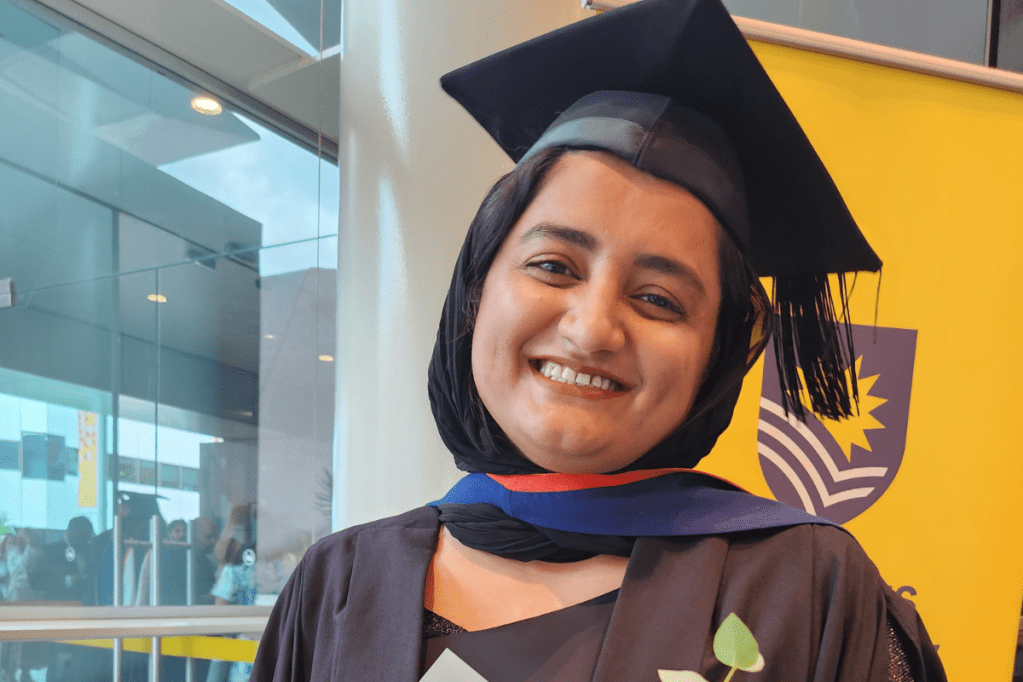
Rebuilding from nothing
When Rabia escaped her abusive marriage, she had no money, no visa certainty, and very limited English. What followed was another kind of trauma: navigating the system.
She had been brainwashed by her ex to believe Australian officials were her enemy and would put her in jail – or worse.
The first night in an emergency women’s shelter was “absolutely terrifying,” she says. Rebuilding a life her ex tried so hard to break took time, strength, and support.
Three years on, she works in a Domestic Violence specialised service, helping other victim-survivors regain their independence – just like she did. She’s also recently completed another university degree.
“I help women enrol in training, apply for jobs, get their lives back. That’s what saved me. Now I get to stand beside them and say, there’s light. Even if you have to make it yourself.”
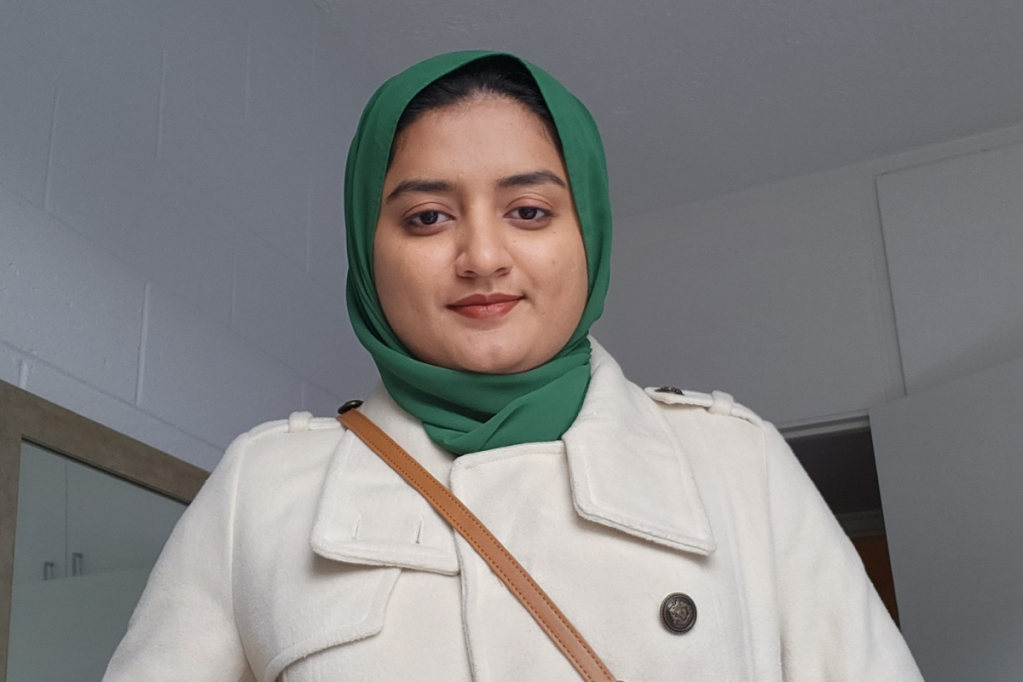
Changing systems, not just stories
Rabia has also contributed to South Australia’s Royal Commission into Domestic, Family and Sexual Violence, due to hand down its findings in August. She helped other women prepare their submissions too.
“We can’t just say the system is broken and walk away,” she says. “We have to fix it. And it starts with listening to survivors. I have a lot of hope about what this Royal Commission will bring.”
The state government has already made key changes in recent months:
- New laws on strangulation, recognising it as a serious form of violence and a red flag for potential homicide.
- Stronger anti-stalking legislation, now including digital abuse and harassment.
- $2 million in funding for prevention and recovery hubs in Adelaide’s north and south, including the Yellow Gate Prevention and Recovery Hub.
- The social media push Rabia supports is just one part of a wider effort to shift community understanding, reshape law, and get support to women faster.
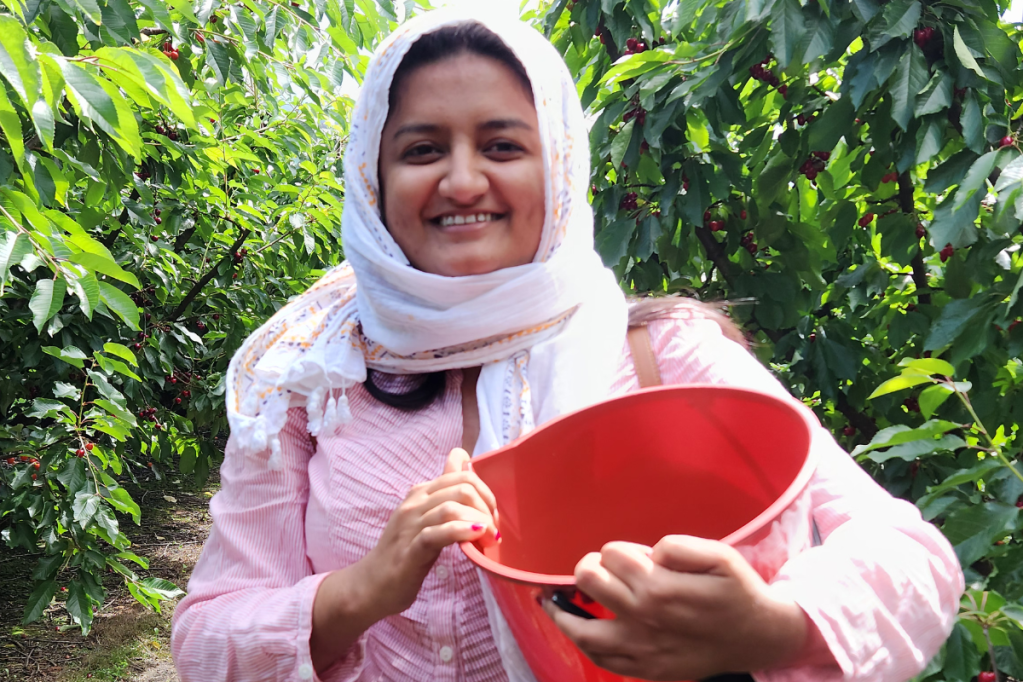
A message to others
Rabia wants her story to reach those who need it most. She knows what it’s like to feel trapped, to believe the lies that you’re worthless or alone.
So if you’re experiencing abuse, she wants you to know that seeking support to leave is always the right decision – no matter how hard it may seem to rebuild your life from scratch.
“You are fighting for your rights,” she says. “And that’s worth everything.”
“You don’t have to be loud to be brave. Speaking up is brave. Standing up for yourself is brave.”
For Rabia, it all comes down to this: “My ex didn’t get to end my story. I did. And I’m still writing the next chapter.”
If you or someone you know is experiencing domestic and family violence, reach out to the Domestic Violence Crisis Line (24 hours) at 1800 800 098 or 1800RESPECT (24 hours) at 1800 737 732.
If it’s an emergency, call Triple Zero (000).


